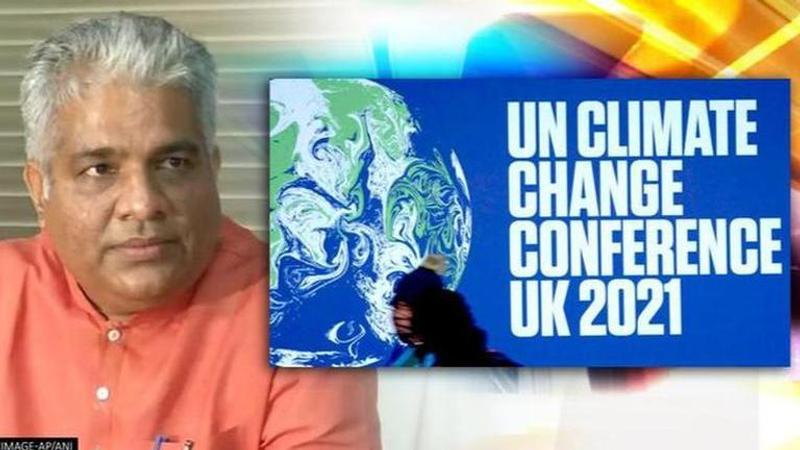Published 17:04 IST, November 14th 2021
India decides to scale down coal power than 'phase-out', nations express disappointment
Rather than committing to a phase-out' of coal power, India's environment minister read a modified version of the text which has utilised the word 'phase-down'

After over two weeks of negotiations in the COP26 climate summit, nearly 200 countries agreed to a compromise agreement on Saturday but a last-minute amendment has diluted the negotiating words on coal power. While the prospective deal has been approved, several nations have expressed disappointment with India's decision to scale down coal power instead of phasing it out, AP reported.
India decides to scale down coal power
Rather than committing to a "phase-out" of coal power, the Minister of Environment, Forest and Climate Change of India, Bhupender Yadav read a modified version of the text which has utilised the word "phase-down" to explain what needed to happen with coal consumption. Yadav further advocated against the term phasing out of coal, claiming that poor countries are obligated to the appropriate use of fossil fuels.
As per AP, India's environment minister accused developed countries of causing global warming. Blaming the rich nations he stated, “Unsustainable lifestyles and wasteful consumption patterns” led to the climate change crisis.
The United Nations had established three criteria to achieve goals prior to the Glasgow conference, yet none of them have been fulfilled successfully. Commitments to cut down carbon dioxide emissions in half by the year 2030, $100 billion in financial assistance from affluent countries to poor countries, and guaranteeing that half of that amount would go to assisting the developing world to prepare for the worst consequences of climate change were among the UN's criteria.
'India’s last-minute change to the language to phase down...is quite shocking'
Furthermore, India was criticised by several other countries and climate activists for making demanding modifications that compromised the final deal. “India’s last-minute change to the language to phase down but not phase out coal is quite shocking,” quoting Australian climate scientist Bill Hare, AP reported. Hare works for the science-based Climate Action Tracker, which analyses global emission commitments. “India has long been a blocker on climate action, but I have never seen it done so publicly,” he added.
While, the United States climate envoy John Kerry, countries have no option but to accept India's coal language modification.
In contrast to the updated coal language, the Glasgow Climate Pact includes sufficient monetary incentives to nearly satisfy poorer countries, resolving a long-standing issue in the process of allowing carbon trading to take place. The COP26 deal also states that significant carbon-emitting countries must return by the end of 2022 and make greater emissions-cutting promises.
Meanwhile, in a statement, United Nations Secretary-General Antonio Guterres stated that the fragile world is dangling on a thread. We are still knocking on the door of climate catastrophe,” AP reported citing the UN chief.
(Image: AP/ ANI)
Updated 16:58 IST, November 14th 2021




